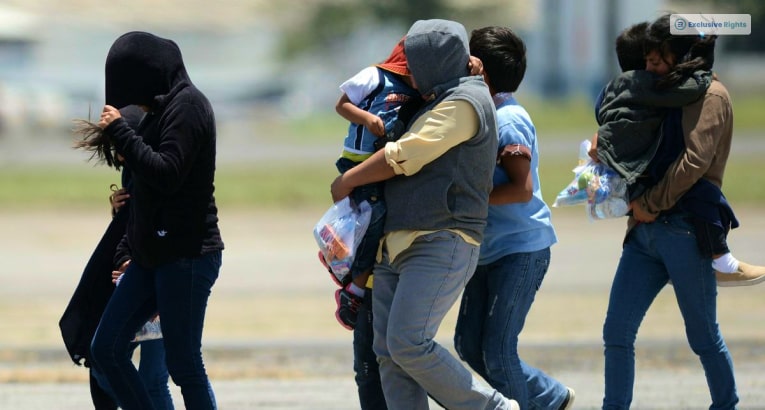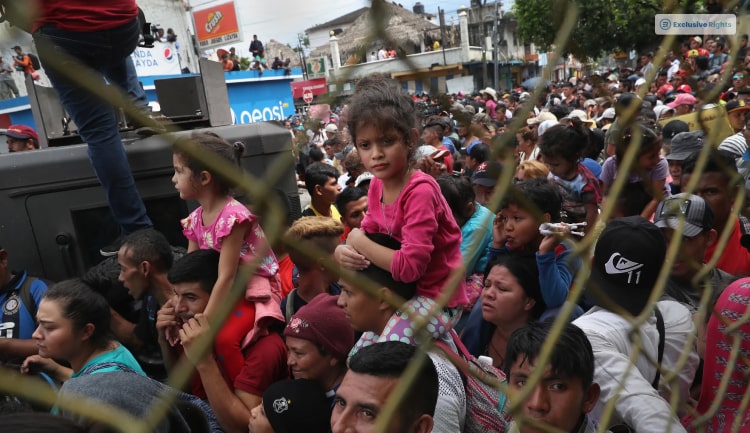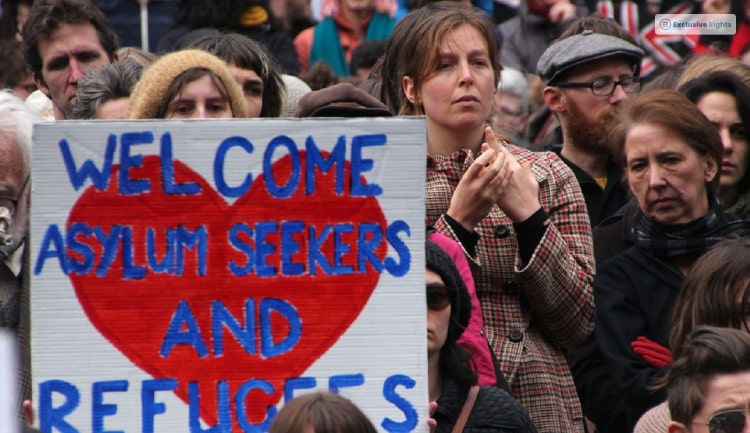
Table Of Contents
- What is Asylum?
- International Laws that Ensure the Right to Asylum in Other Countries
- Important Bodies
- Federal Law- Right to Asylum in Other Countries from Persecution
- US Court Rulings- Right to Asylum in Other Countries from Persecution
- United Nations (UN) Court Rulings- Right to Asylum in other Countries from Persecution
- Importance Of Right to Asylum in Other Countries from Persecution
Right To Asylum In Other Countries From Persecution: What Is It?
In the year 1959, the Dalai Lama and his followers escaped from Tibet to seek asylum in India. They had to flee because the Chinese government kept them under inhuman conditions. India’s Prime Minister, Jawaharlal Nehru, welcomed the Dalai Lama and his followers and gave them asylum in the Republic of India. This meant they could live in India without fear of being mistreated.
The right to seek and enjoy asylum from persecution in other countries is a fundamental human right. It allows vulnerable citizens of one country being mistreated to seek refuge in another nation.
This right allows them to find safety and protection away from the harm they might experience in their own country. It will enable nations to uphold human life’s values and safeguard individuals from persecution.
This way, countries prove their commitment to human rights and provide refuge for those in search of safety and a better future.
What is Asylum?

So, you might be wondering, what does “asylum” actually mean?
Well, let me break it down for you. Asylum is a legal concept describing when someone seeks protection from harm or fears harm in their own country. It’s a lifeline that allows them to get refuge in another country and be able to ask for safety and shelter.
When a person is granted asylum, it means that the country’s government recognizes the threat to their life and safety in their homeland and agrees to give them refuge.
It’s all about offering a fresh start and a chance for a better and safer life. So, in a nutshell, asylum is a way for people to escape harm and find protection in a new country.
International Laws that Ensure the Right to Asylum in Other Countries

Let’s dive into the international laws that protect the Right to Asylum in other Countries from Persecution. These are rules that countries all around the world agree to follow and deem to be necessary. These laws are here to make sure that people facing danger or fear of life in their own country have the chance to find safety in another country.
So, when it comes to asylum, these international laws have got your back.
Universal Declaration of Human Rights
This vital document declares that everyone has the right to seek asylum from persecution. It’s like a big rulebook that countries follow to protect people in need.
1951 Refugee Convention and 1967 Protocol
These treaties are like superheroes for asylum rights! They lay out specific rights and protections for refugees, including the right to seek asylum. Countries that are part of these agreements promise to provide refuge for those facing persecution.
European Convention on Human Rights
In Europe, this convention ensures the Right to Asylum. It’s an agreement among European countries to protect human rights, including the right to seek asylum from persecution. It’s like a safety net for those seeking protection on the continent.
African Charter on Human and Peoples’ Rights
This charter plays a crucial role in safeguarding the Right to Asylum in Africa. It outlines the rights and freedoms of individuals, including the right to seek and enjoy asylum from persecution. It’s all about ensuring people have a safe place to go when they’re in danger.
These international laws and treaties work together to protect individuals facing persecution and have the opportunity to find safety and protection in other countries.
Important Bodies
Some important bodies take charge when it comes to guaranteeing the Right to Asylum in other Countries from Persecution.
United Nations High Commissioner for Refugees (UNHCR)
This is like the big boss of refugee-related matters. The UNHCR plays a key role in protecting and assisting refugees around the world. They work with governments to protect the Right to Asylum and see that it is respected for those seeking refuge.
Each country has a responsibility to observe and protect the Right to Asylum.
Governments create laws and policies to regulate the asylum process, decide eligibility, and grant protection to those needing it. They work hand in hand with international organizations to protect the rights of refugees.
Courts and Tribunals
Legal systems safeguard the Right to Asylum. Courts and tribunals interpret national and international laws to protect refugees from persecution. They review asylum-related claims, make decisions, and provide remedies in case of violations of asylum rights.
Non-Governmental Organizations (NGOs)
NGOs provide invaluable support to refugees and asylum seekers. They offer legal and humanitarian aid and advocate for the rights of refugees. These are like the superheroes on the ground working alongside governments and international bodies to protect the Right to Asylum.
Together, these bodies form a powerful network to guarantee the Right to Asylum in other Countries from Persecution.
Federal Law- Right to Asylum in Other Countries from Persecution

Federal Law in the USA and the US Constitution guarantee the Right to Asylum in other Countries from Persecution. Let’s see how these laws work for this purpose.
The Immigration and Nationality Act (INA) is a federal law that outlines asylum seekers’ procedures and requirements.
It allows individuals who have a fear of persecution in their home countries to apply for asylum in the United States. The US government recognizes the importance of protecting the rights of the people who seek refuge in their times of need.
The Constitution is the supreme rulebook in the United States.
It supports the Right to Asylum while protecting everyone without any discrimination. For example, the Fifth Amendment prohibits the government from depriving one of life, liberty, or property. This includes individuals seeking asylum. When applying for protection, they have the right to a fair and just process.
Federal law and the US Constitution work hand in hand to guarantee the Right to Asylum in other Countries from Persecution.
US Court Rulings- Right to Asylum in Other Countries from Persecution
Let’s see some of these rulings.
The Matter of Acosta
In this landmark case, the US Board of Immigration Appeals established the “well-founded fear” standard. It clarified that people seeking asylum must have a reasonable fear of persecution due to their race, religion, nationality, political opinion, or membership in a particular group.
Cardoza-Fonseca v. INS
The US Supreme Court’s decision recognized the well-founded fear standard. Asylum seekers only needed to establish a reasonable fear of persecution rather than a case or proof of absolute certainty. This ruling recognized the challenges faced while seeking protection and gave more flexibility in the scope of asylum claims.
The Case of Mogharrabi
This case stated that past persecution is a valid basis for granting asylum. The court recognized that individuals who have already suffered harm in their home country can still be at risk if they return. It proved that the fear of future persecution could be out of past experiences.
The Case of Kasinga
This was a very influential case. It expanded the scope of the phrase “social group.” It stated that certain types of persecution, i.e., gender-based violence, are enough to grant individuals asylum. This ruling showed the unique circumstances faced by women and girls when they sought protection.
These court rulings have shaped the interpretation and application of asylum laws in the United States.
United Nations (UN) Court Rulings- Right to Asylum in other Countries from Persecution
Let’s take a look at some of these court rulings that had an impact on protecting individuals seeking refuge.
M.S.S. v. Belgium and Greece
The European Court of Human Rights, which is linked to the UN, heard this case. It highlighted the responsibility of countries to ensure proper asylum procedures and protect individuals from inhumane treatment. The ruling emphasized that countries cannot return asylum seekers to places where they might face persecution.
Hirsi Jamaa and Others v. Italy
In this case, the UN Human Rights Committee held that a refugee should not be sent back to a country where their life or freedom would be at risk. All countries must respect the principle of nonrefoulement. The ruling stressed the importance of a fair asylum process.
N.H. v. Canada
The UN Committee Against Torture operates on the Convention Against Torture. It delivered the ruling that countries should not deport one to a place where their life could be at risk. The ruling portrayed the importance of risk assessment in asylum cases.
Importance Of Right to Asylum in Other Countries from Persecution
The Right to Asylum in other Countries from Persecution is very important. It provides a lifeline for people facing serious harm in their motherlands. These are some real-life examples of asylum.
The Case of Syrian Refugees
In the Syrian civil war, many people had to leave their country because of violence and mistreatment. They went to nearby countries like Turkey, Lebanon, Jordan, and Europe to find safety. The Right to Asylum let them escape the conflict and be safe in other nations.
World War II
Jewish people were in great danger during World War II due to the Nazis. They had to flee Germany and other occupied areas. They got asylum in countries like the United States, the United Kingdom, and some South American nations. The Right to Asylum helped them escape persecution and find a safe place away from the Holocaust.
Iranian Revolution
After the 1979 Iranian Revolution, people who spoke against the new government faced persecution. They sought asylum in countries such as the United States, Canada, and Europe, where they could freely express their political beliefs without fear of mistreatment.
These only show how the Right to Asylum is vital for protecting people facing persecution.
Read More:









